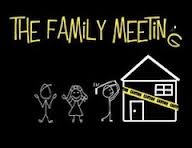Excerpt from Chapter 8: Family Meeting
 Thursday, August 7, 2014 at 7:20AM
Thursday, August 7, 2014 at 7:20AM The notion of working hard and working often seemed to be rubbing off on other members of my household: Joe took on more hours throughout the week and even on a few Saturdays for overtime pay, and my mother got a full-time job as a housekeeper for the Crowne Plaza Hotel in Shrewsbury, in addition to her regular house-cleaning hours. While I was excited to see more money come into the house, what little family unity we had was giving way to longer hours at work or late-night social events with co-workers. Coming home on a Friday night to an empty house made it tempting to return to my old ways of drinking and partying, but in my heart, I was done with all that. I was used to having a lot of unsupervised time as a child, but this was different because I could see that Joe and my mother’s relationship had drifted apart.
 In fact, my mother had already divorced Joe when I started high school, but since she had three boys and nowhere to go, they agreed that we would stay in the house. Darrell and I still had our own rooms, but my mother and younger brother Derrick slept on the living room couch, an embarrassing reality that I hid by rarely inviting friends over. And even though they were divorced, my mother sometimes spent time in the back room with Joe. I suppose she had to pay a price for keeping some type of roof over our heads. Back then, though, I wondered why she did not muster up the courage to try to make it on her own since her boys were growing up, but as an adult now—a father—I look back and understand that she was trying to hold a semblance of family together for our sake.
In fact, my mother had already divorced Joe when I started high school, but since she had three boys and nowhere to go, they agreed that we would stay in the house. Darrell and I still had our own rooms, but my mother and younger brother Derrick slept on the living room couch, an embarrassing reality that I hid by rarely inviting friends over. And even though they were divorced, my mother sometimes spent time in the back room with Joe. I suppose she had to pay a price for keeping some type of roof over our heads. Back then, though, I wondered why she did not muster up the courage to try to make it on her own since her boys were growing up, but as an adult now—a father—I look back and understand that she was trying to hold a semblance of family together for our sake.
Naturally, working multiple jobs and multiple shifts took its toll on my mother. Because Joe was a horrible example, we grew up letting my mother do all the cleaning and cooking around the house. If she asked for help, we helped, but we did not take the initiative to do it unrequested. One day, my mom came home from work and found my brothers and me sitting in the living room—her bedroom—watching TV. As soon as she came through the door, her housekeeper uniform still on, I asked her if she could clean the bathroom because it was filthy. She looked at me as if I was Joe. “Get your ass up and clean it yourself!” she responded. “But I don’t know how!” I protested.
She lost it. She screamed and cursed at me and grabbed whatever was closest—her purse, her shoe—and let me have it. That was when I knew she was pushed to the edge. Upset with myself for being such a bonehead, I ran to the bathroom and frantically grabbed a towel and the bar of soap on the sink, but the emotional damage to her was done.
“Ma, I finished cleaning the bathroom,” I ventured when I finished cleaning as well as a novice could. “I’m sorry for saying that.”
She walked away from me. “Good,” she said, bone-tired and angry. “It’s about time you learn how to do things around this house.”
So I did what I always did when things did not go well in my life: I left the house and got drunk. I had someone buy me a forty-ounce and went to the park alone, letting myself sink into buzzed relaxation with each sip.
When I came home, I had to weave through the living room to get to my room, so I knew I would encounter my mother, but I didn’t care anymore, either. I opened the door, and our eyes met in silence as I made my way to my room.
During that season in my life, there were many mornings when I woke up to find that both Joe and my mother had left for work, leaving me with the responsibility of making sure my brothers got up, got dressed, got something to eat, and made it to school, especially Derrick, who was still in elementary school. The additional money coming into our home mattered less to me as whatever family unit we previously had vaporized before my eyes.
One night, the phone rang, and it was my mother. She had missed the last city bus for the night and was not able to get home. “Douglas, please go ask Joe if he can come pick me up so I can get home.”
Now, it being late in the evening, Joe had already downed a couple of beers and probably should not have been driving in the first place, but I did not want my mother to be stranded alone in the streets of Shrewsbury for the night. As I made my way to Joe’s bedroom door, I thought twice about knocking. I even thought about just taking his car, even though I did not have a driver’s license, but I realized that might have done more harm than good. So I knocked hesitantly on his door.
“Joe, Ma’s on the phone and needs to speak with you. It’s important.”
On the other side of the door, I could hear him whispering under his breath, put off by having to talk to my mother. In one surprisingly fluid motion, he opened the door, took the phone from my hand, and slammed the door back in my face. Hoping that he would man up and just go get her, I put my ear to the door. At first, all I heard was silence. Then he said, “What do you mean you missed the last bus? Well, you better start walking because I’m not picking you up.” When he flung the door open, I fell into the room. He threw the phone at my chest. “Here, take it,” he said, grabbing his silver can from the nightstand. “I don’t have anything else to say to your mother tonight.”
“Joe, why can’t you just pick her up so she is not stranded in Shrewsbury?” I asked, scrambling up from the floor. “What the hell is wrong with you?”
Agitated, Joe told me to shut up and closed the door in my face for the second time that night. In desperation, I told my mother I would just take Joe’s car and come get her.
“No, Douglas,” she said firmly. “You don’t have a license, and that will just make matters worse. You just go to bed, and I will figure something out. Don’t worry about me. I will just see you sometime tomorrow. Take care of Darrell and Derrick for me.”
Before I could get in a last word, my mother hung up the phone. I stood in our kitchen, staring at the phone in dismay as my chest filled with rage toward Joe. I was getting old enough to no longer be afraid of his drunken escapades and thought that I could actually take him. I harbored a lot of resentment and anger toward him, and I knew that one day I would not be able to hold it in any longer.
I gathered my brothers from their respective beds (or, in Derrick’s case, the couch) and shared the news with them, adding that it would be best if we all stayed in the same room that night. Without my mom, there was a big void in the house, and I wanted us to feel like we at least had each other. But I could not sleep at all. I kept thinking that somehow, some way, my mother would walk through the door, and for some reason, I felt it was important—necessary, even—that I listen for the moment her key turned in the lock. But as the minutes turned into hours, it became obvious that she was not coming home. My mind filled with fear for her. Would she have to sleep outside? It was bitter cold, twenty or thirty degrees with wind that cut to the bone, and her jacket was as thin and patchy as any of ours. What if she didn’t make it through the night? The uncertainty nearly killed me, but there was nothing I could do.
The next morning, I woke up and said nothing to Joe. I just did what my mother had instructed me to do: get Darrell and Derrick up and ready for school. I spent the entire school day not knowing what had happened to my mother. I did not know if she was alive or where she was, but I prayed throughout each class that she would be home when I got there.
I ran full speed toward home as soon as the school bus dropped me off. As I made my way up the stairs, the aroma of my mother’s fried chicken got stronger and stronger. Before I reached the door, my mother opened it with a smile. As if she had been home the entire time and there was nothing to worry about, she said, “I’ve been expecting you. Take off your shoes and wash your hands because I made you and your brothers something to eat.” I had never been happier to see her except the time she came back for us when we stayed with our grandparents in Norfolk.
As we ate, I asked for details on where she’d spent the night, but she did not want to talk about it. She just shared that she had friends from Crowne Plaza that lived in Shrewsbury and was able to crash with them. And that was it. She did not want me to bring it up again.
After that encounter, Ma and Joe acted like two rival boxers getting ready for their final fight. On a daily basis, our house was either a silent universe where everyone kept to themselves or a war zone where profanity, yelling, and sometimes fists ruled the night. The financial pressures, lack of family intimacy, and long hours at work were taking their toll on all of us. Over the next several months, my mother worked late-night shifts and stayed in Shrewsbury with a friend from her work—or at least that was what she told us.
Please share this blog throughout your network and order your copy of Watch Me Rise today at:
https://store.roundtablecompanies.com/SearchResults.asp?Search=doug+luffborough&Submit=GO




